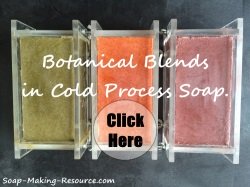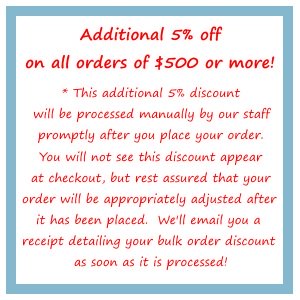Castor Oil for Soap Making
Pretty much all soap makers who use castor oil for soap making swear by its effectiveness for adding an amazing lather and great moisturizing properties to the finished product.
| Castor Oil 16oz | $6.42 | Out of Stock |
| Castor Oil 64oz | $21.34 | Out of Stock |
| Castor Oil 1 Gallon | $27.84 | Out of Stock |
Soap Making Resource's quality products: |
|||
 |
 |
 |
 |
 |
 |
 |
 |
Free delivery on orders $200 or more *Contiguous USA only |
|||
Sign up for the Soap Making Resource e-Newsletter. |
|||
Orders Outside the USA Please Click Here. We Ship Worldwide! |
|||
Here are the fatty acid, iodine, and SAP values for those who are interested in trying castor oil for soap making:
| Lauric | 0% |
| linoleic | 4% |
| linolenic | 0% |
| Oleic | 4% |
| Palmitic | 0% |
| Ricinoleic | 90% |
| stearic | 0% |
| myristic | 0% |
| Iodine Value | 86 |
| SAP Value Sodium Hydroxide | .128 |
| SAP Value Potassium Hydroxide | .180 |
Incorporating castor oil into your soap making recipe will add the following characteristics to your finished product:
| Bubbly lather | Yes |
| Creamy/Stable lather | Yes |
| Cleansing | Mild |
| Conditioning | Yes |
| Hardness | No |
The lather that castor oil produces is what really makes it such an appealing ingredient for soap making. You need to actually try using castor oil soap to truly appreciate how wonderful the lather is... I can guarantee you won't be disappointed!
In addition to the wonderful lather, the conditioning and moisturizing properties that this ingredient adds is a great bonus for using castor oil for soap making.
Keep in mind that you don't need to use a huge amount of castor oil in order to see the benefits in your soap. I recommend keeping it at around 5% - 10% of the total oils used in your batch. While using the right amount of castor oil will reap incomparable benefits in your soap, If you incorporate too much, your soap may feel a bit sticky and soft. You definitely don't want that!
Using castor oil for soap making also seems to speed up trace somewhat. For this reason, it's a good idea to adjust your soaping routine accordingly. You can soap cooler to slow down trace. When using castor oil, I combine the lye and oils at around 90 degrees (which for me is a lower temperature then normal) to avoid an overly quick trace. Also, if you are the type of soap maker that uses a stick blender, you may want to cut down the amount of time that you use the device and stir more manually. This, however, is not really necessary for most soap makers... especially those who have some experience.
When using a stick blender for too long when making castor oil soap, trace could potentially sneak up on you and your soap may quickly become too thick to pour into a mold. When stirring manually, there will be less risk of accidental seizing that some beginners experience.
Want to learn more about the skin care benefits of castor oil? Click here now to learn about using castor oil for acne prone complexions!
Return from castor oil for soap making to the soap making ingredients (product list) main page.











